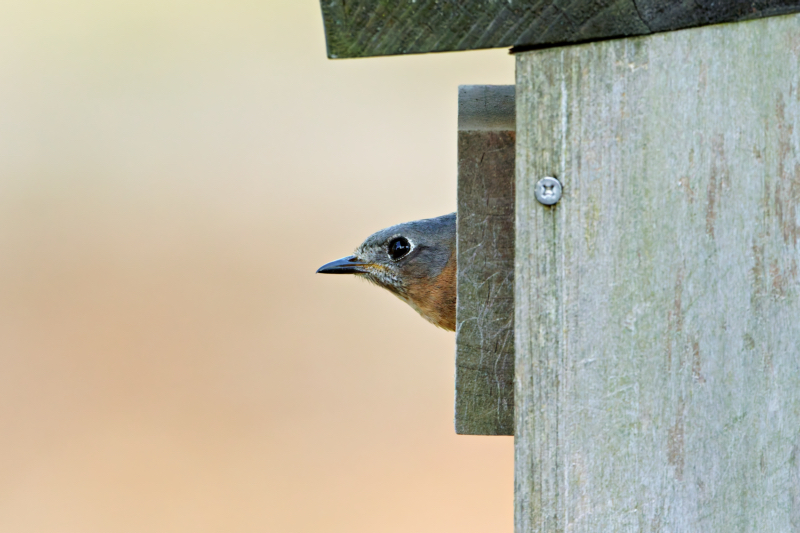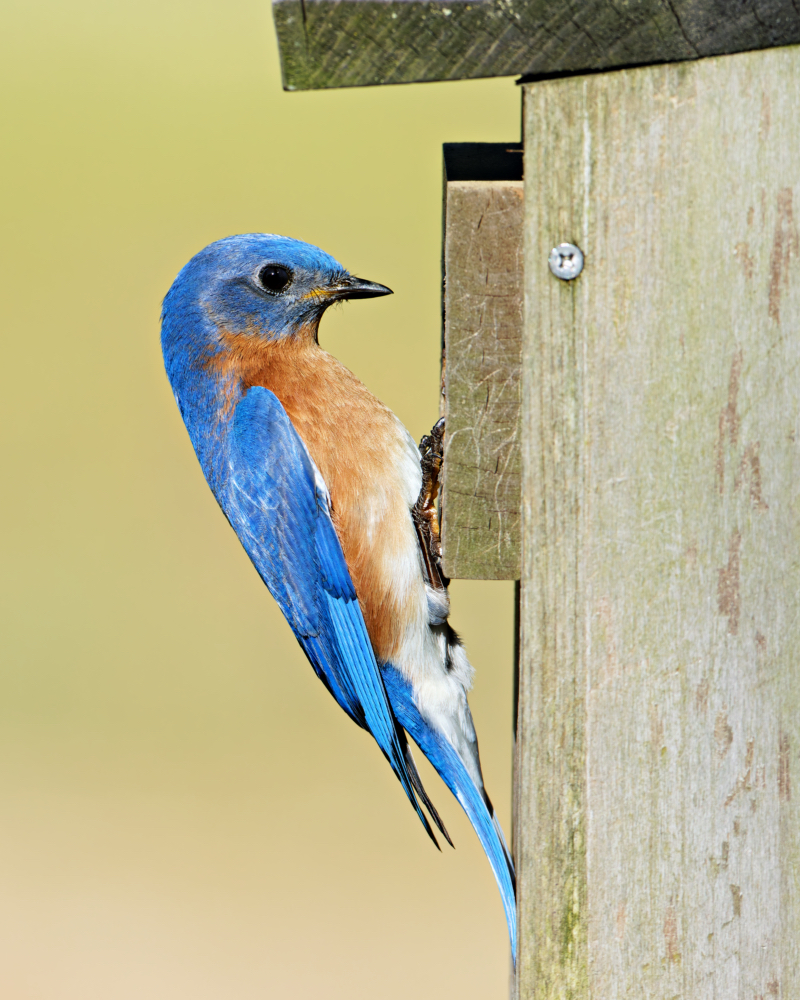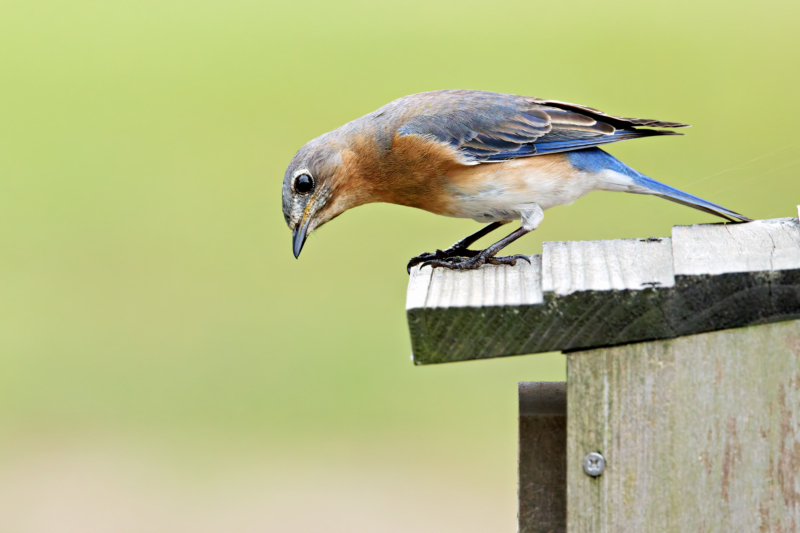It’s been a few weeks since I first noticed a pair of Eastern Bluebirds checking out the birdhouse in my backyard (Eastern Bluebirds Building a Nest in My Yard). After much nest building and preparation, I’m excited to report that the female has laid eggs and appears to be incubating them!

From my observations and some research, here are some insights into this stage of the bluebirds’ breeding cycle:
The Egg Laying Process
Female Eastern Bluebirds typically lay between 4-5 eggs per clutch, though some lay as few as 2 or as many as 7. She lays one egg per day, usually in the morning hours. Interestingly, on rare occasions two females may actually lay eggs in the same nest and co-incubate and feed the chicks together.
While bluebird eggs are usually a lovely blue-green shade, some females may lay white or even pinkish colored eggs. However, all the eggs in a single clutch will be the same color for that female.
The female began full incubation after laying the last egg or possibly a day before. Now her job is to keep the eggs warm and secure until they hatch.
Incubation Behavior
Only the female incubates the eggs, spending around 60% of her time actually sitting on the nest. The devoted male’s role is to bring her food while she’s tending the nest.

The average incubation period for a bluebird clutch is 13-14 days, though it can range from 11-19 days depending on the region’s temperatures. Since we’re in a warmer climate, I’d expect to see hatchlings on the early side if all goes well.
While incubating, the female will take short breaks off the nest to eat, drink, and defecate. But she typically stays on the nest overnight. If any eggs don’t hatch within about 72 hours of the others, she may continue incubating them for a few more days before eventually abandoning any failed eggs.

Overall, the female shoulders the entire burden of nest construction, egg laying, and incubation – all while the male’s job is to stick by her side and make sure she’s fed. What a team!
I’ll provide another update once the eggs have hatched and there are hungry mouths to feed. But for now, I’ll enjoy witnessing this amazing cycle of bluebird parenting from my backyard. Nature is truly a wonder!

Hi Steve,
Very interesting information and images.
I can’t wait to see what comes next.
Thank you for sharing.